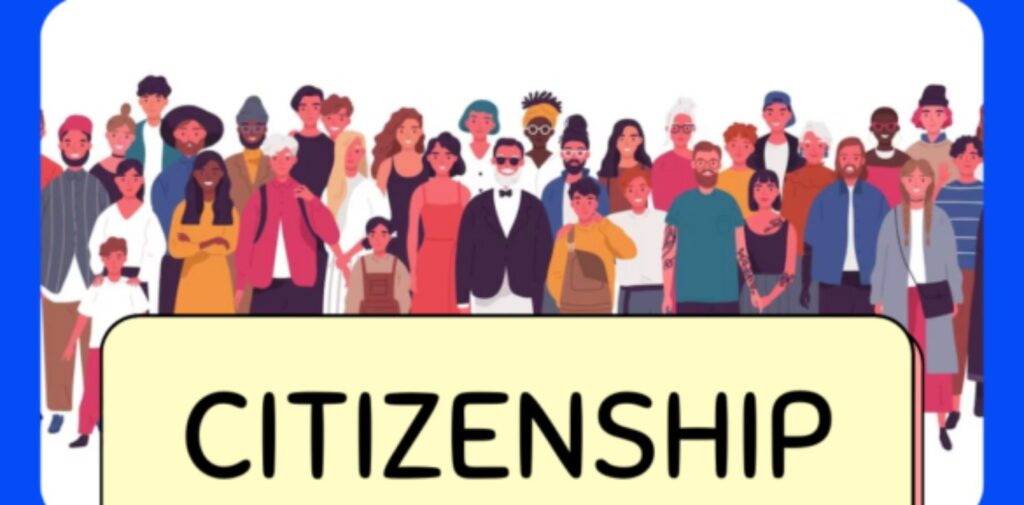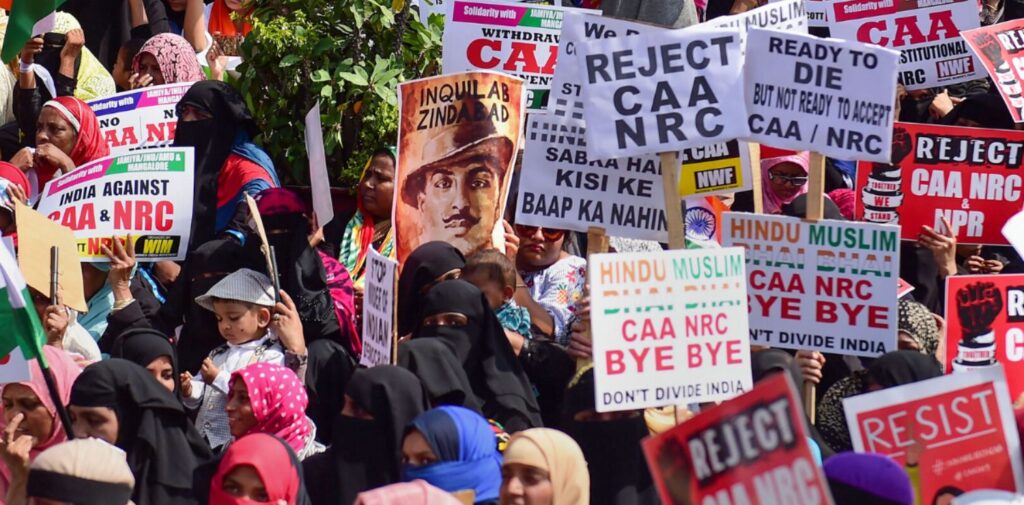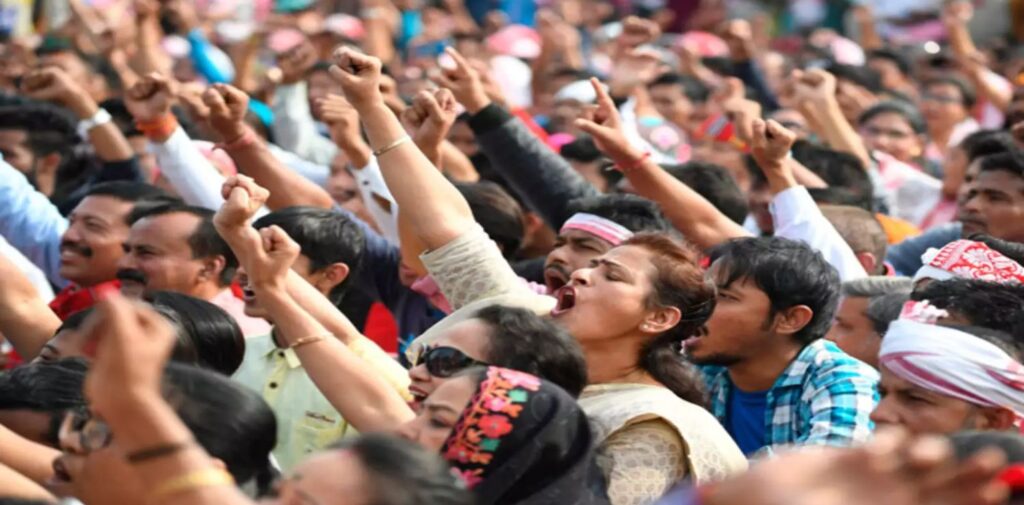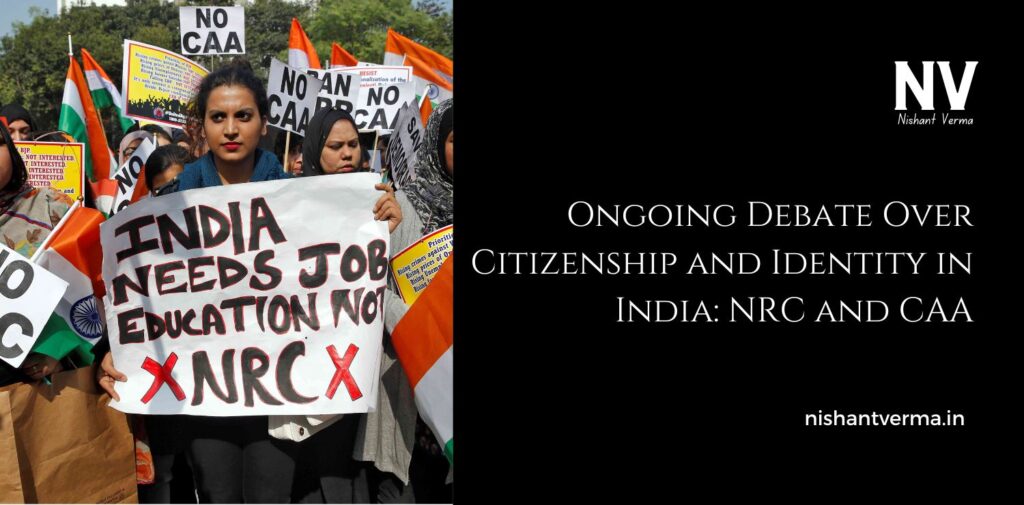India, a land of diverse cultures, religions, and languages, has always been a country where people from different backgrounds live together. The idea of who belongs to India and who doesn’t has been a part of many important discussions in the country. This debate has become even more intense in recent years, especially with the introduction of two key issues: the National Register of Citizens (NRC) and the Citizenship Amendment Act (CAA). These two issues have caused a lot of confusion, protests, and debates among citizens and lawmakers.
In this article, we will explore the ongoing debate over citizenship and identity in India, focusing on the NRC and CAA. We will explain what these terms mean, why they have become controversial, and how they affect people’s lives in simple and easy language.

What is Citizenship?
Before understanding the NRC and CAA, it is important to know what citizenship means. Citizenship is the legal status that allows a person to live and work in a country, to vote in elections, and to enjoy the rights and protections provided by the country. In India, a person can become a citizen by birth, descent, registration, or naturalization.
Being a citizen of a country means that a person has the right to live there and is recognized by the government as a member of the nation. But what happens when someone is unsure of whether they belong to that country? This is where the debates over NRC and CAA come in.
What is the NRC (National Register of Citizens)?
The National Register of Citizens (NRC) is a list of people who are recognized as citizens of a country. The idea behind the NRC is to identify who is a legal citizen and who is not. In India, this process became widely discussed during the NRC exercise in Assam.
In Assam, a state in India, the government conducted an NRC exercise to identify citizens who had been living in the state since before 1971. The reason for this exercise was to identify immigrants who had come to Assam from Bangladesh (formerly East Pakistan) after the India-Pakistan war of 1971. The government wanted to make sure that people who were not originally from India and had entered the country illegally were not included as citizens.
The NRC exercise was controversial because many people who had lived in Assam for generations were left out of the list. These people, often from poor backgrounds, struggled to provide the necessary documents to prove their citizenship. As a result, many families found themselves without legal recognition as citizens, and this led to widespread fear and confusion.
What is the CAA (Citizenship Amendment Act)?
The Citizenship Amendment Act (CAA) is another law that has been at the center of the debate on citizenship. The CAA was passed by the Indian government in December 2019. It offers citizenship to non-Muslim religious minorities, such as Hindus, Sikhs, Buddhists, Jains, Parsis, and Christians, who have faced religious persecution in neighboring countries like Pakistan, Bangladesh, and Afghanistan. The law aims to provide these religious minorities with a path to Indian citizenship.
At first glance, the CAA seems to be a law meant to protect minority communities. However, it became controversial because it does not include Muslims in the list of religious minorities who can seek citizenship. Many people saw this as unfair because it treats Muslims differently from other communities and violates the principle of equality.

Why are NRC and CAA Controversial?
Both the NRC and the CAA have become highly controversial for several reasons. These laws have caused people to question their identities and their citizenship. Let’s take a closer look at why these issues are creating so much debate in India.
- Fear of Exclusion: The NRC has created fear among many people, especially in states like Assam. People are worried that they might be excluded from the NRC list, even though they have lived in India for generations. This fear is especially strong among people from minority communities, such as Muslims, who feel they may be unfairly targeted in the process. Without the proper documents, they might not be recognized as citizens, and this could lead to their being considered stateless or sent to detention camps.
- Discrimination Against Muslims: The CAA has been criticized for not including Muslims as a group eligible for citizenship, which many people see as discriminatory. Critics argue that by excluding Muslims, the government is giving special treatment to certain religious communities while leaving out others. In a country like India, where Muslims make up a significant portion of the population, this has led to concerns about the protection of their rights and equality under the law. Many people also fear that the combination of the NRC and CAA could be used to target Muslims and exclude them from citizenship, which could lead to further division in the country. For example, if a Muslim person is excluded from the NRC list but does not qualify for citizenship under the CAA, they may end up in a difficult and uncertain situation.
- Concerns About the Impact on Poor and Marginalized Communities: The process of proving citizenship in the NRC is expensive and complicated. Many people from poor and marginalized communities, especially in rural areas, do not have the documents required to prove their citizenship. For example, people might not have birth certificates, land records, or school documents that can serve as proof. This makes it difficult for them to prove their citizenship, even if they have lived in India for their entire lives. The CAA does not address this problem for all communities. While it provides a path to citizenship for religious minorities from neighboring countries, it does not provide any relief to those who are excluded from the NRC list due to lack of documentation.
- The Fear of Creating a Divided Society: One of the biggest concerns about the NRC and CAA is that these laws could create divisions in Indian society. India is a country that prides itself on being a secular nation, where people of all religions and communities live together peacefully. By focusing on religion in the CAA and treating certain groups differently, critics argue that these laws threaten India’s secular nature and could lead to greater religious intolerance. Many people fear that the NRC and CAA could be used as tools to divide the population, leading to conflicts between different communities. Protests against the CAA and NRC have been held in various parts of the country, with people demanding the government to withdraw or amend the laws to ensure equality for all citizens, regardless of their religion.
What Are the Protests About?
The passing of the CAA and the implementation of the NRC sparked large-scale protests across India. People from all walks of life, including students, political leaders, and ordinary citizens, took to the streets to voice their opposition. The protests were particularly strong in universities and cities, where people expressed concerns about the impact of the laws on India’s democratic values and secular identity.
The protests were mostly peaceful, but in some cases, violence broke out, and the police were accused of using force against demonstrators. The government, on the other hand, defended the CAA as a law that helps persecuted minorities from neighboring countries and said that the NRC process would help identify illegal immigrants.

What is the Way Forward?
The debate over NRC and CAA is ongoing, and the final outcome remains uncertain. However, it is clear that these issues are not just about laws but also about people’s identity, their right to belong, and their place in the country.
It is important for the Indian government to ensure that any process related to citizenship is fair, transparent, and does not lead to the exclusion of any group based on religion, language, or background. It is also essential to address the concerns of those who fear being left out of the NRC process due to lack of documents.
In a country as diverse as India, it is crucial to remember that the unity of the nation comes from embracing its diversity and ensuring that every citizen, regardless of their religion or community, feels safe, valued, and equal.
Conclusion
The ongoing debate over NRC and CAA highlights the importance of understanding citizenship, identity, and equality in India. These laws have raised important questions about who belongs to India and who doesn’t. While the government has argued that these laws aim to protect certain communities, critics see them as discriminatory and unfair.
As India moves forward, it is essential to have open, respectful discussions about these issues. It is only through dialogue and understanding that India can find solutions that protect the rights of all its citizens and ensure a peaceful and inclusive society.




